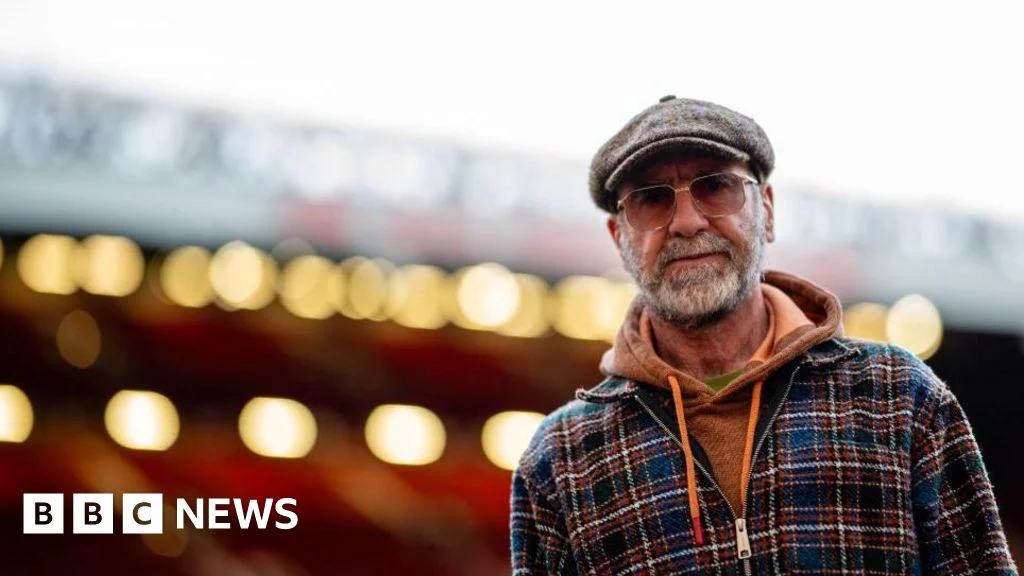
Eric Cantona’s Scathing Rebuke Of Sir Jim Ratcliffe Sparks Soul-Searching At Manchester United
Manchester United legend Eric Cantona has unleashed a blistering criticism of minority owner Sir Jim Ratcliffe, accusing him of trying to 'destroy everything' that makes the club special. The Frenchman’s passionate comments have ignited fierce debate over the identity, soul, and future direction of the iconic English giant — raising questions about modern football ownership and the true cost of sweeping change.
Over the weekend, Cantona threw himself behind FC United of Manchester, a fan-owned club created in protest against old ownership, symbolically joining as a co-owner alongside his family. Meanwhile, his searing attack on Ratcliffe’s stewardship highlights deep concerns many supporters share over the club’s cultural drift amid controversial restructuring and ambitious redevelopment plans.

Cantona — revered for transforming United’s fortunes from 1992 to 1997 — accused Ratcliffe and his newly appointed executives of disrespect and disregard not just towards staff but to the entire heritage of the club. “Since Ratcliffe arrived this team of directors try to destroy everything and they don’t respect anybody,” he lamented, referencing redundancies affecting over 450 employees and the apparent sidelining of icons like Sir Alex Ferguson. “The soul of the team and club is not just the players. It’s the people around. It’s like a big family.”

At the heart of Cantona’s anguish lies United’s contentious £2 billion plan to demolish Old Trafford and construct an ultra-modern 100,000-seat ‘New Trafford’ nearby by 2030. To him and many fans, replacing the historic ground — United’s home since 1910 and known worldwide as the 'Theatre of Dreams' — risks erasing an irreplaceable part of the club’s essence. “Arsenal lost their soul when they left Highbury,” he warned pointedly. “Can you imagine Liverpool not playing at Anfield? Impossible. I don’t think United can play anywhere but Old Trafford.”

The redevelopment proposal, dubbed the 'Wembley of the North', aims for a capacity rivaling Europe’s largest venues and sweeping regeneration of the Trafford area. Yet despite consultations with 30,000 fans, many feel the decision prioritizes corporate interests over tradition — with a roughly even split between those wanting to preserve Old Trafford and those open to change.
Cantona characterises the approach as cold economics over community. “Maybe we’re just dreamers and they care more about economy and strategy. I hate this kind of decision.” He even offered to pause his film career to assist the rebuild of ‘something real,’ only for his proposal, he says, to be ignored by Ratcliffe’s team. “They don’t care. So I don’t care. But it makes me sad for United.”

The split reflects a broader unrest under Ratcliffe since his reported £1 billion investment for a 27.7% stake was finalised in February 2024. Cost-cutting measures, staff layoffs, cancelled traditions, and even the severing of Ferguson’s ambassador role have jarred a club famed for unity, humility and success. The Reds finished a woeful eighth in the league, their worst-ever Premier League finish, deepening uncertainty.
For Cantona, FC United’s model offers a poignant antidote. The breakaway non-profit, democratically run on a 'one member, one vote' basis without prioritising profits, ‘puts people before revenue,’ as he praised. “Football belongs to the people — that is very important.” His family’s commitment underscores his ideal of preserving football’s communal heartbeat amid commercial storms.
The juxtaposition between a billionaire’s ambitious blueprints and a legend’s nostalgic plea reveals a core dilemma for Manchester United and modern football overall: does progress demand forsaking heritage, or can future and tradition coexist?
As the club steams ahead into this turbulent era, Cantona’s words echo louder than corporate forecasts: “We have to find this soul again.” Whether that soul lives in concrete or community remains a pressing question for fans worldwide.
Is Manchester United losing its identity, or simply evolving for a new age? Share your thoughts and join the debate below.